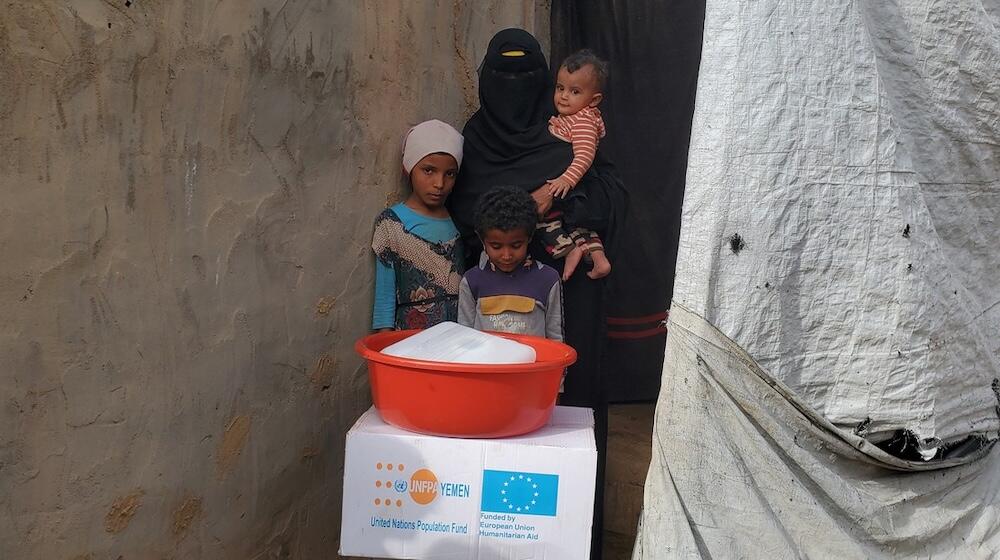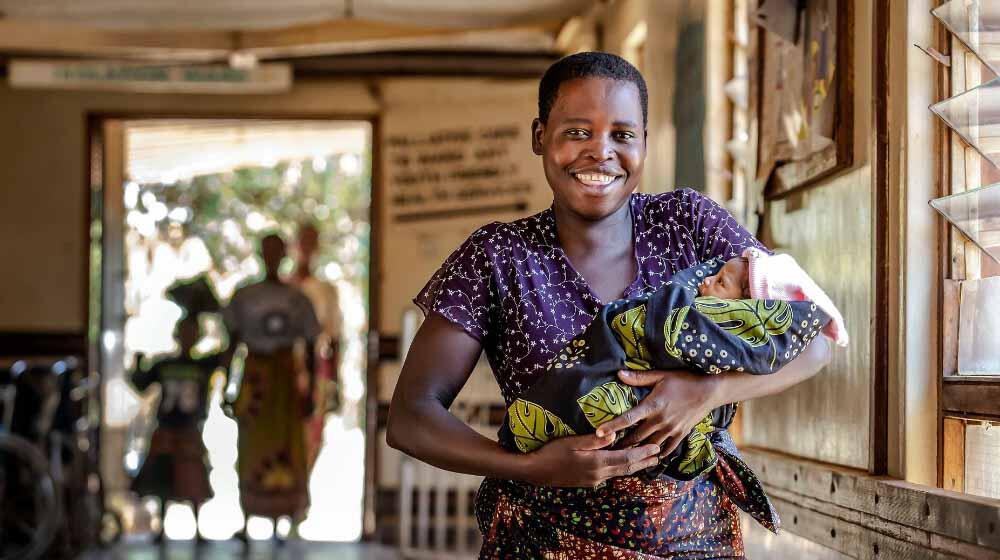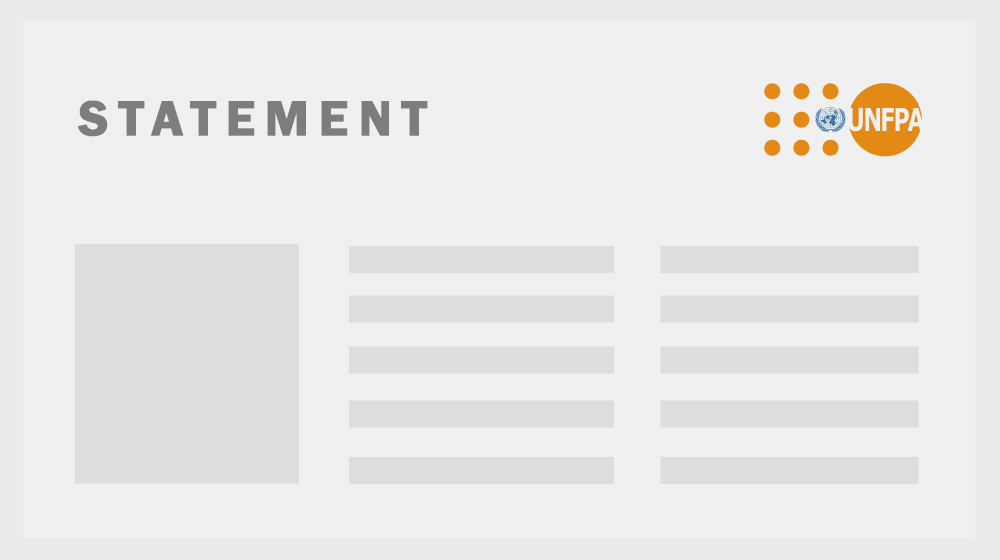
Each day is about survival: The reality of parenting in Gaza
In Gaza, nearly 50 mothers and their children are killed every day. And in northern Gaza, the flow of aid has been grinding to a halt, leading to warnings of imminent famine. Parents under immense s...
Each day is about survival: The reality of parenting in Gaza
In Gaza, nearly 50 mothers and their children are killed every day.
And in northern Gaza, the flow of aid has been grinding to a halt, leading to warnings of imminent famine.
Parents under immense stress tell UNFPA, the United Nations sexual and reproductive health agency, that they just want to be able to give birth without bombs falling; to find food and milk; and to put their children to bed warm and safe each night. But in Gaza right now, parenting is simply about surviving.
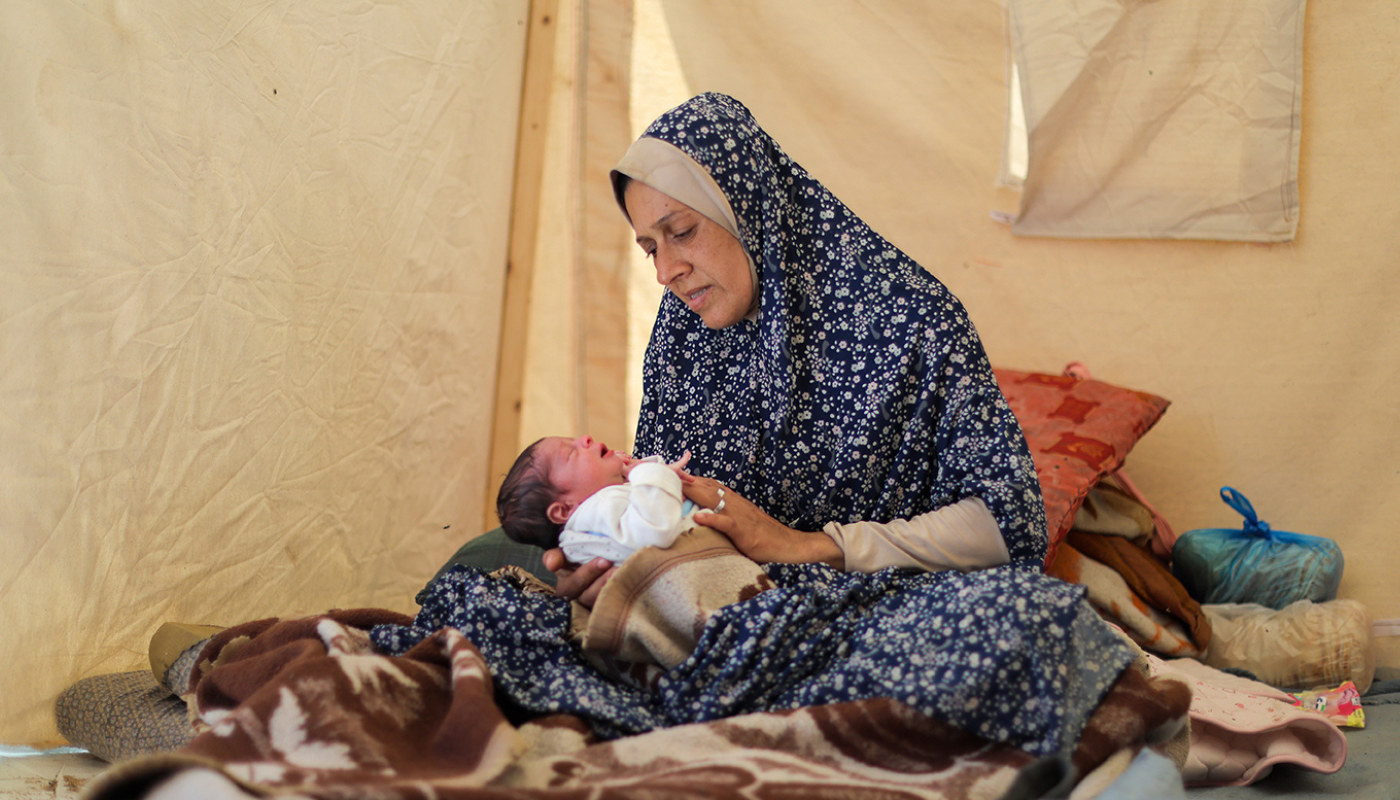
Jawaher was fleeing violence in Gaza city amid the terrifying sound of drones, missiles and gunfire when she felt her first labour pains. The last thing Jawaher wanted was for the baby to arrive right then and there. “I was not ready for childbirth,” she said. Jawaher went through two full days of labour before reaching the Al-Sahaba hospital where she was able to give birth safely.
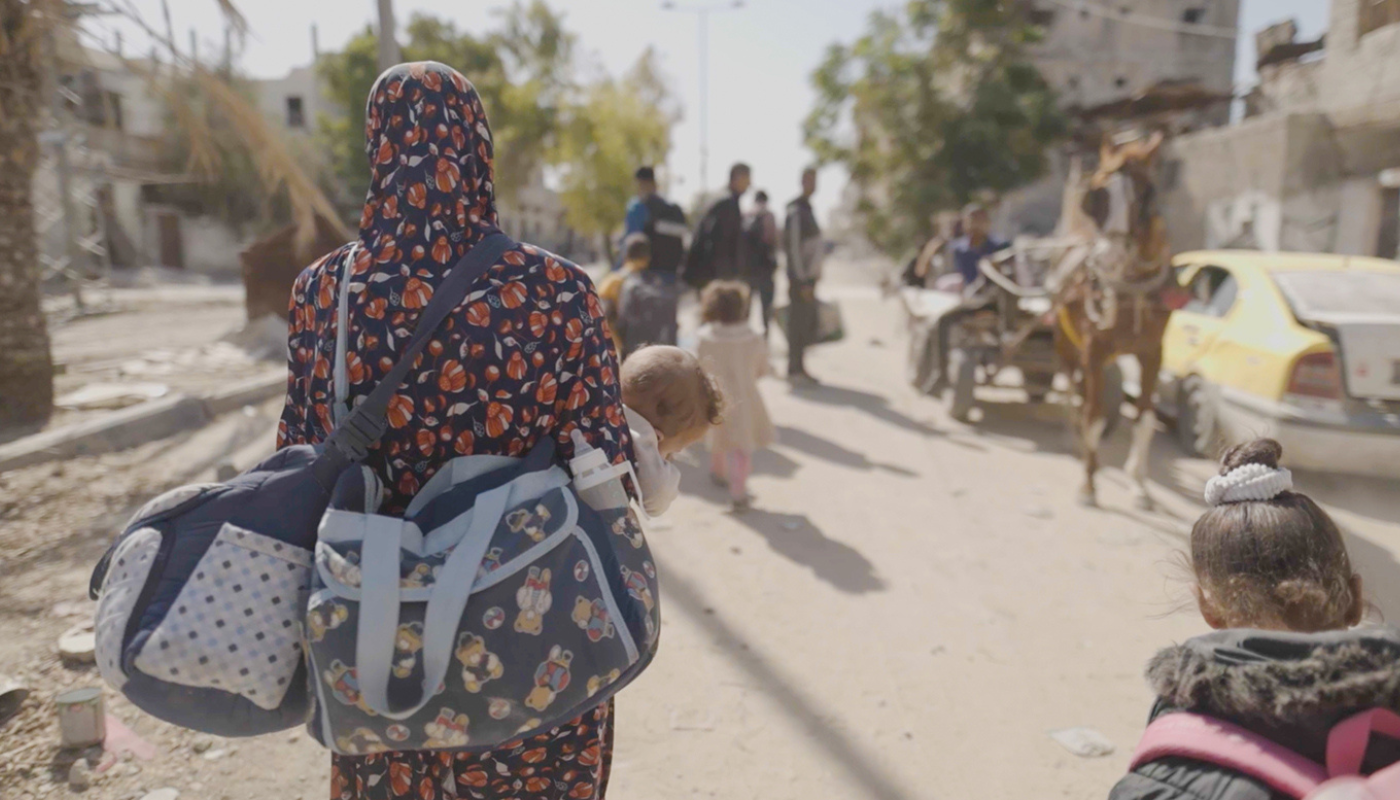
With nearly 80 per cent of the Gaza Strip under active evacuation orders and 130 births expected across Gaza every day, Jawaher’s experience of going into labour while on the move is far from uncommon.
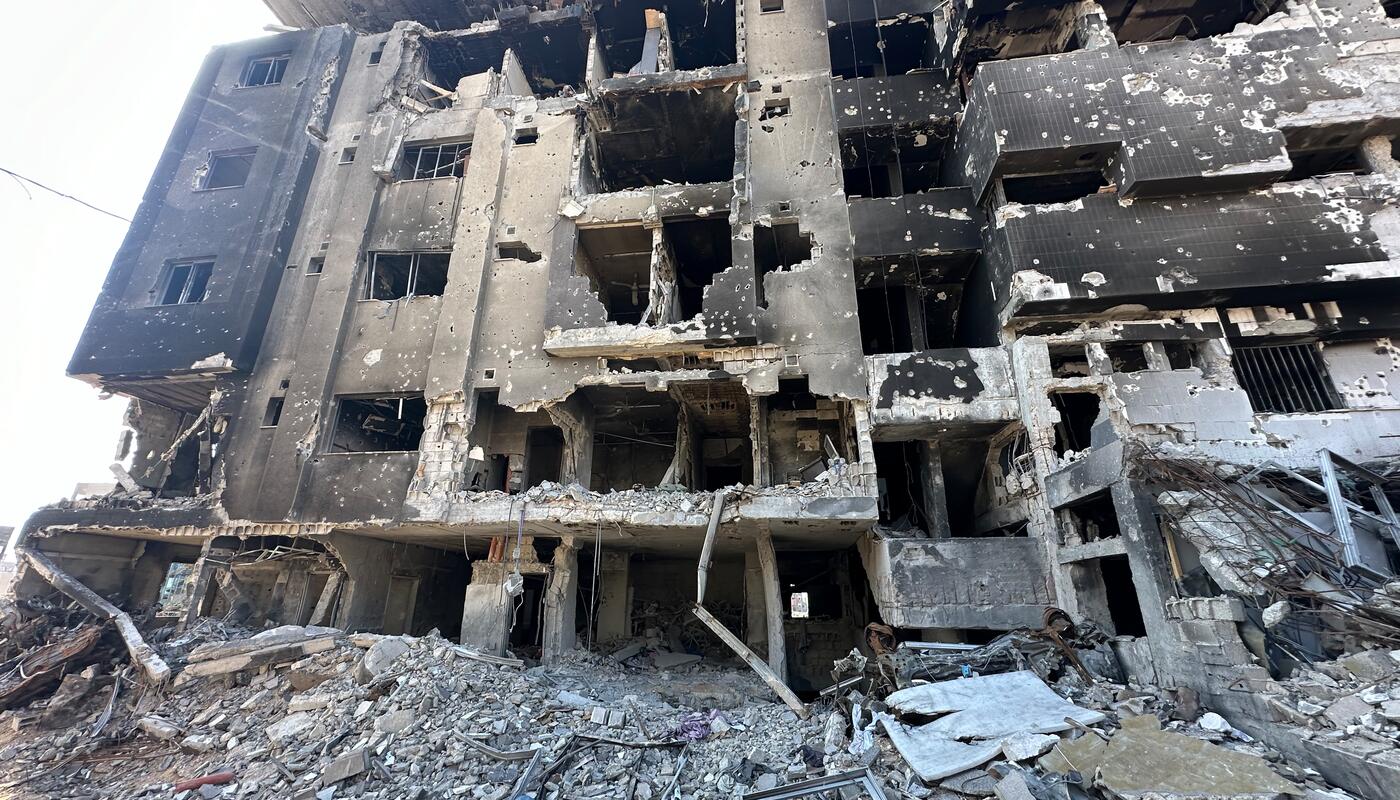
Jawaher gave birth at the Al-Sahaba Hospital in Gaza city, which has been under immense pressure since the nearby Al-Shifa Hospital was decimated by air strikes* (pictured above, in April 2024). A World Health Organization report stated that 84 per cent of health facilities in Gaza have been destroyed. UNFPA has provided equipment and supplies to the Al-Sahaba Hospital.
*Al-Shifa Hospital was a specialist unit for obstetric emergencies. It has since reopened a general emergency department, in September 2024, but has so far been unable to provide maternal health services.
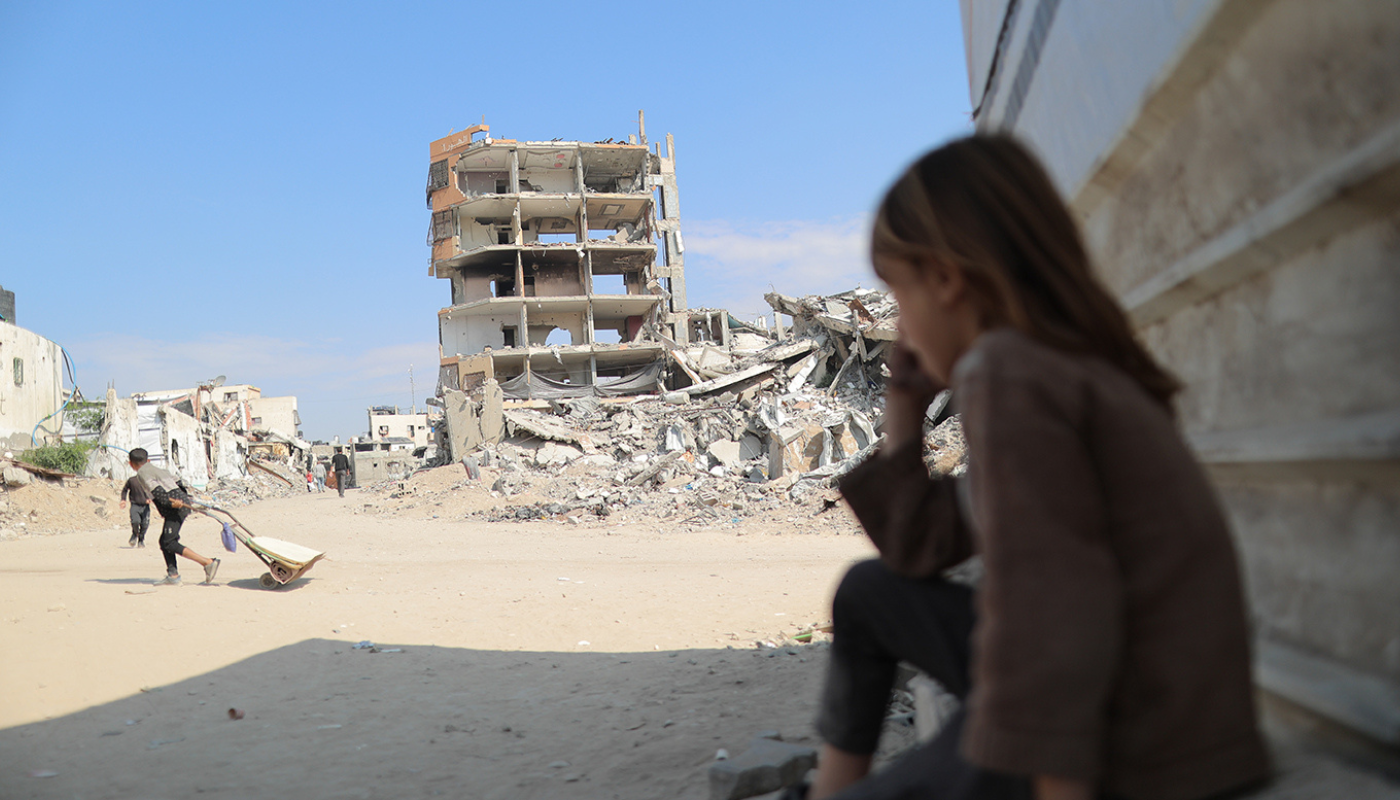

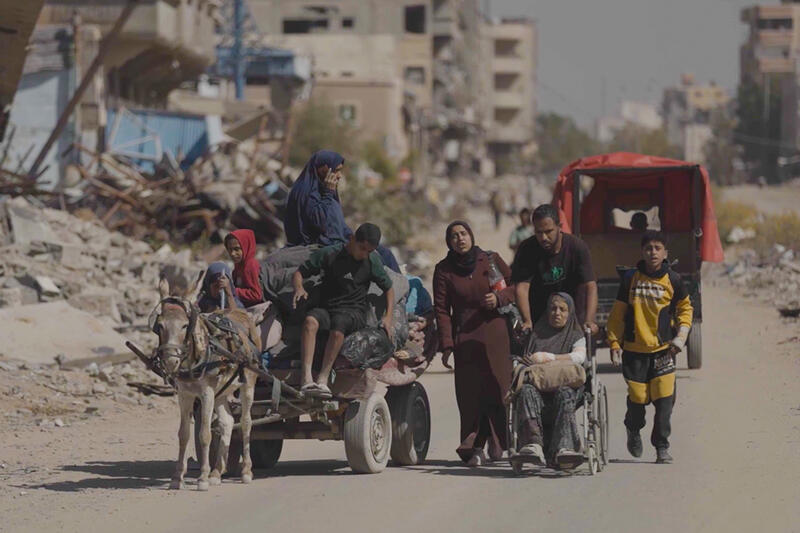
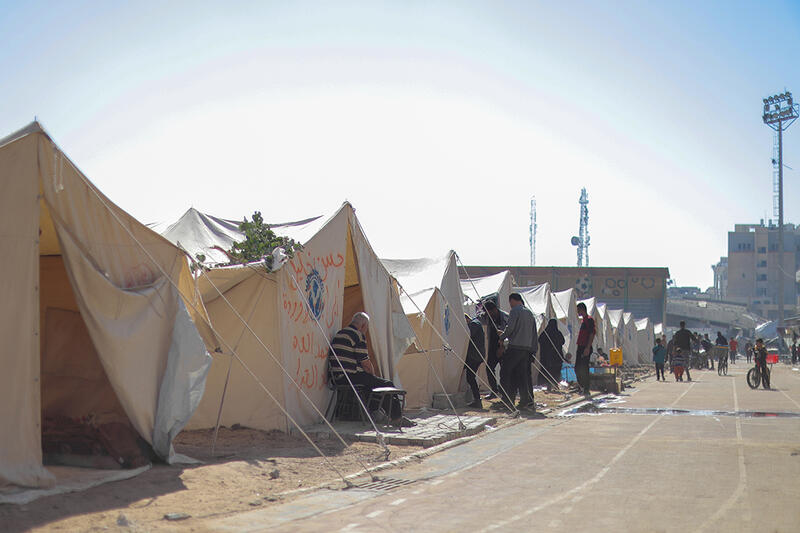

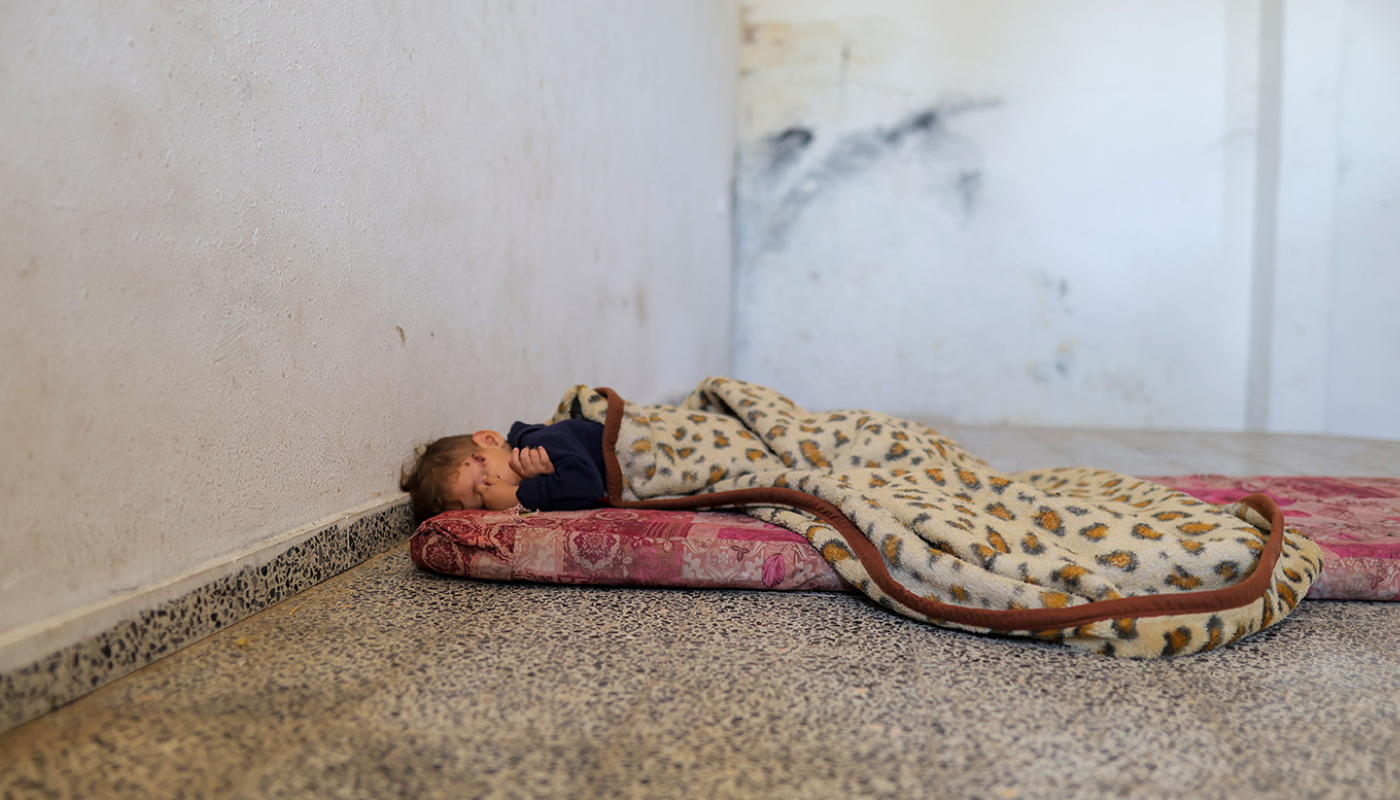
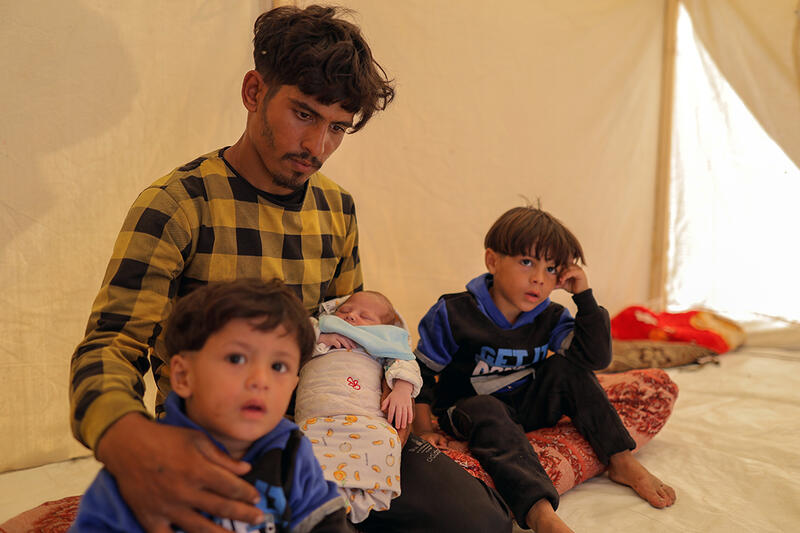
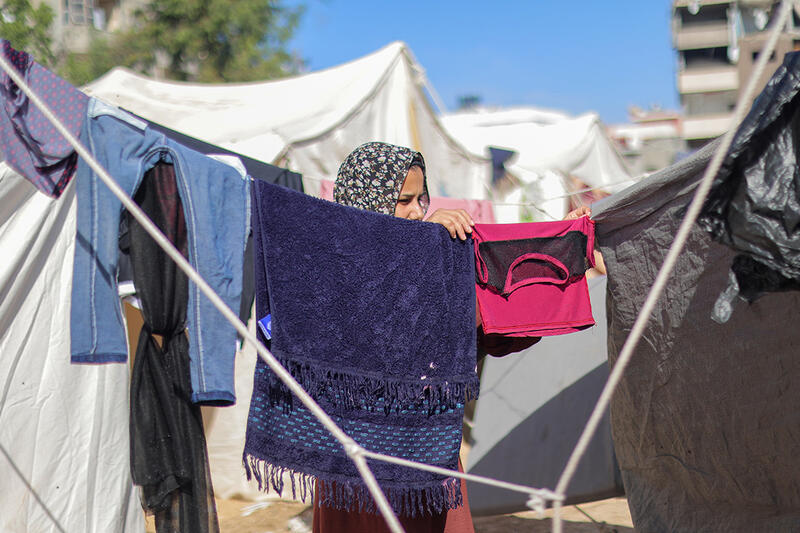
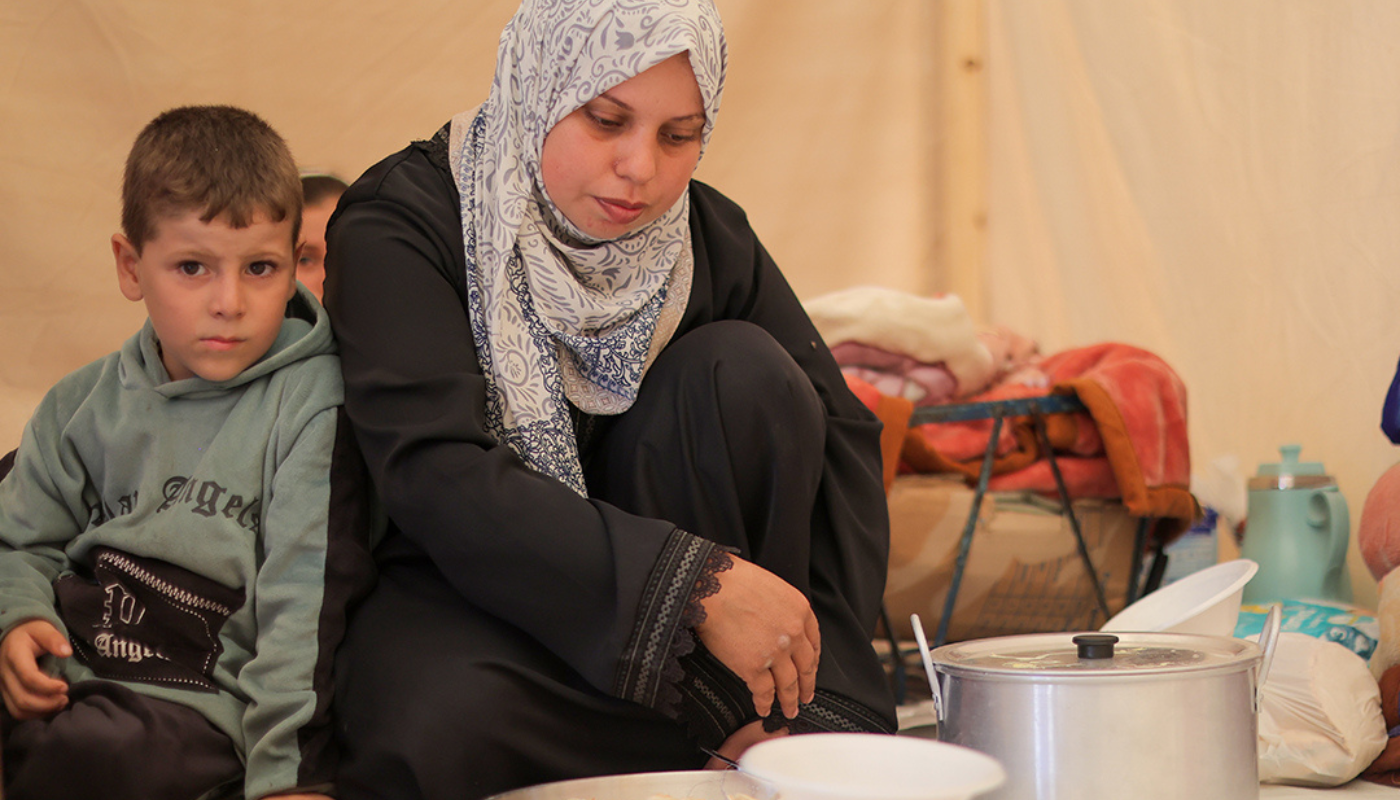
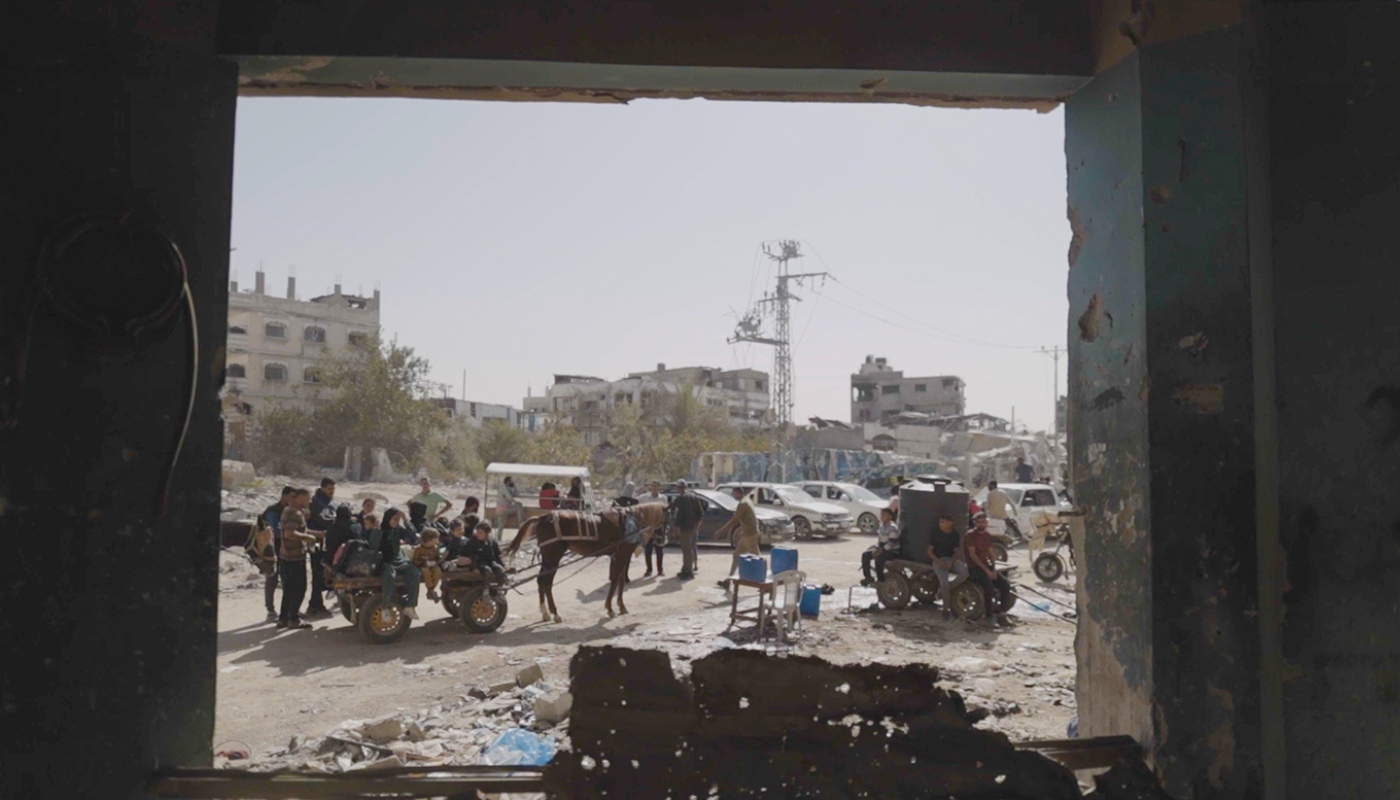
Attempts by the UN to support people in Gaza are being impeded or denied. Just 41 per cent of aid was allowed entry into Gaza between 1-18 November. UNFPA’s supplies are among those stuck at the border.
UNFPA continues its work to support women and girls, including by operating five mobile maternal health units, deploying midwives, increasing protection services for survivors of gender-based violence and channelling essential supplies to hospitals. However, as aid movements into Gaza fall to their lowest levels in 11 months, needs are soaring, and the majority of Palestinians are being left without the essentials to survive.
